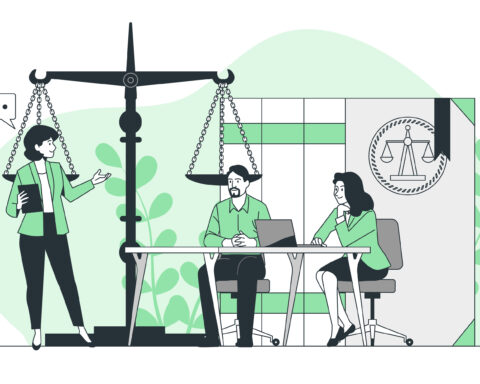Attorney Bas A.S. van Leeuwen is a skilled negotiator who excels in navigating and securing favorable terms through adept negotiation techniques. He prioritizes amicable solutions, emphasizing cooperation and constructive outcomes over prolonged legal battles. Van Leeuwen approaches negotiations with a holistic perspective, considering both immediate legal implications and broader contexts.…
Read moreAttorney Bas A.S. van Leeuwen distinguishes himself in the legal arena with a strategic and thorough approach to litigation. Whether navigating criminal courts, administrative tribunals, or civil proceedings, he leverages his expertise to advocate for the rights and interests of his clients. Known for his meticulous preparation, van Leeuwen’s litigation…
Read moreInvolves an approach where even the smallest offence leads to (harsh) punishment.…
Read moreOrganisations with a workforce of 50 employees or more must have a works council (WoCo). A WoCo is an employee participation and co-determination body within an organisation and its members are employees who consult with the employer on behalf of the staff about company policy and employee interests. The Works…
Read moreA whistleblower exposes malpractice in an organisation. Employers with a workforce of 50 or more must set up a procedure for reporting (suspected) malpractice in the employer’s organisation. The obligation to have an internal whistleblower policy referred to here is part of the Dutch Whistleblowers (Authority) Act (Wet Huis voor…
Read moreIs the behaviour and attitude of top management, including the board and supervisory body of an organisation, which focuses on setting a good example.…
Read moreOversees an organisation’s policies and implementation of policies on behalf of shareholders and the stakeholder. A supervisory director is a member of the organisation’s supervisory body.…
Read moreThe supervisory body of an organisation, such as the Supervisory Board or the Board of Trustees. The term governance body refers to the supervisory body of an organisation, regardless of its actual designation. In practice, there are other types of body that either have a different role or are formalised…
Read moreThe obligation under laws or regulations to report an event, a transaction or possibly relevant non-compliance with laws and regulations to a specific authority. This also includes drawing up an internal report or issuing an alert if a specific situation arises, based on a code of conduct.…
Read moreArticle 10 of the Constitution provides for the right to privacy: ‘Everyone has the right to respect for his privacy, subject to limitations imposed by or pursuant to the law.’ Other legislation contains rules about what can and cannot be done in the context of privacy. The most important one…
Read more

